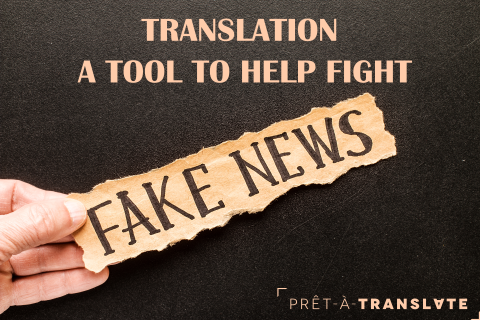
Translation: a tool to help fight fake news
How to stop yourself falling for hoaxes
We entered the information age some years ago. The Internet opened the door to vast amounts of real-time content. So much so, that a few years later, we started talking about “infoxification” or information overload.
This information overload gave way to information manipulation with fake news and hoaxes, which has led us to the misinformation age.
Why is fake news created?
Out of interest. It’s that simple. Some people or organisations benefit from manipulating information to influence your behaviour, whether it’s to change who you vote for, change your life or shopping habits or create conflict between people, just to give a few examples.
What can you do to avoid fake news?
We’re human. And even the most sceptical of us can get caught off guard and believe something that we receive on WhatsApp or read on social media. That’s why the best thing we can do is be wary of information from unknown sources (such as WhatsApp voice messages) or other things you cannot check.
We have a very useful website in Spain, called maldita.es, which debunks all types of fake news stories and where you can fact-check information.
In the UK, there is an independent fact checking charity, called fullfact.org and I am not sure if there are any similar pages in other countries, but if you know of any, please feel free to share them in the comments.
Where does translation come into all of this?
During the misinformation age, translators’ work is (as usual) to facilitate communication and help dispel false information.
For example, we translate information from reliable sources that is spread with malicious intent in other countries or we translate texts and videos for journalists who are carrying out investigative reports so that they too have a reliable source.
Since information becomes outdated in a matter of hours (or less), this is where machine translation systems can come in handy so that it can get to journalists sooner. However, dear journalists, a word of warning: machine translation is useless, unless a translator has post-edited it before it reaches you. Please don’t ever publish a machine-translated text directly because you could be contributing to even more misinformation.
ith the current coronavirus crisis, organisations like Translators Without Borders are collaborating with public bodies to translate, analyse terminology and monitor posts on social media in different languages to help fight pandemic-related misinformation and which, as is often the case, easily gets into the hands of the most vulnerable people.
So before you share something that could be fake:
- Check the source
- Fact check
- Ask a translator
